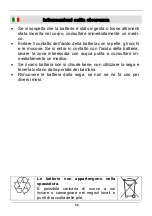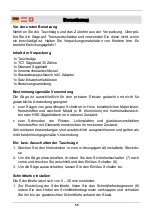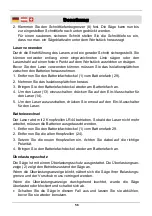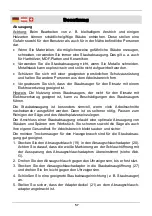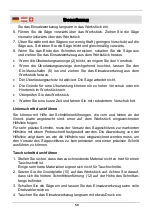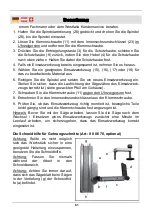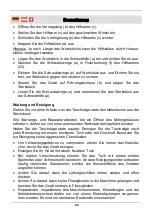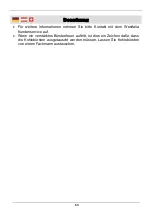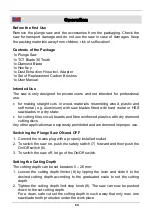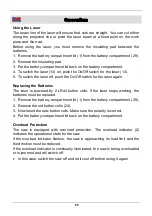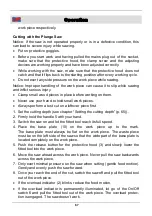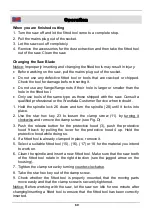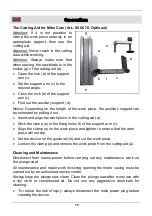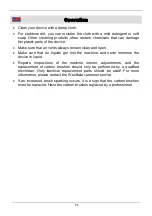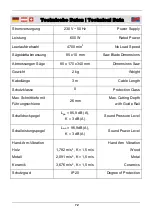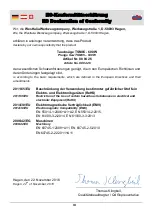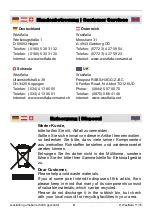
68
Operation
Overloading may be caused by excessive feed motion or an obstacle in the
work piece.
Check the work piece.
Wait a short time and then continue with a reduced feed motion.
Straight Cuts
You can use the cutting line guides located on the front and back of the base
plate to follow a guide line marked on the work piece.
For precision cuts, the offset of the kerf with respect to the marked guide line
must be determined by performing a test cut. Any resulting deviation from the
guide line indicates how the new line must be marked to compensate for the
offset of the kerf so that you can perform a precision cut.
Making Plunge Cuts
1. Make sure that the material you intend to cut is not too hard for a plunge
cut.
Some very hard materials are not suitable for plunge cutting.
2. Place the base plate (10) on the work piece. Make sure that the rear
cutting line guide (12) is in line with the start of the cut.
3. Switch on the saw and let the fitted tool reach its full speed.
4. Slowly plunge the fitted tool into the material applying gentle pressure.
5. Move the saw ahead across the work piece. Never pull the saw backwards
across the work piece.
6. Once you reach the end of the cut, switch the saw off and pull the fitted
tool out of the work piece.
Cutting large Work Pieces
Proceed as follows to work on large work pieces or cut long, straight edges:
1. Use screw clamps to secure a board or a strip for use as a temporary guide
on the work piece.
2. While cutting, run the left side of the base plate (10) along the temporary
guide.
Cutting Tiles
Use the Diamond cutting disc (15). Attach insulating tape to the tiles to
facilitate work and prevent scratches.

